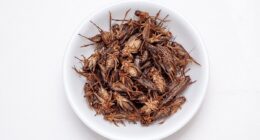There’s an assumption in life that by the time you’ve reached your more seasoned years, you’ve made all the close friends you need. Surely you’ve accumulated enough through school, university and work. But I’ve learned that close friends can be made at any age. In my case, one of my most meaningful, profound friendships was formed when I was in my mid-50s. It is a unique bond that crosses cultures, languages and continents.
The first time I met Kyung-sook Shin I was unbelievably nervous. I was 56 and she was 10 years my junior. I was a New York literary agent and she the most famous author in Korea, comparable to JK Rowling. Her groundbreaking novel, Please Look After Mother, was all about a mother who sacrificed everything for her family only to be discarded by them. When it came out in Korea in 2009, it was the bestselling book that year.
Kyung-sook’s novels often concentrate on the marginalisation of women, giving a voice to those otherwise ignored. This has earned her a huge, loyal readership among women, as well as men, all captivated by her poetry and emotional depth.
At the time, nobody outside Korea had heard of Kyung-sook Shin or Korean literature but, in my heart and mind, I knew the value of it. I sent her a long and detailed letter outlining my plan for her book and how I could help it become a global sensation with translations in every language. When Kyung-sook turned down all the major New York agencies and chose me, I was overjoyed, but also nervous. Now I would have to deliver on what I had promised.
By the time we first met in person, it was 2011 and she was in New York for her US publication. Two years had passed since first writing to her and Please Look After Mother had sold around the world.
We had agreed to meet for dinner and soon the panic set in. To me, she was a true literary god. What restaurant was special enough for her? I had to pay respect and honour her properly. Also, I don’t speak Korean and she doesn’t speak much English. My Korean agent, Joseph Lee, agreed to act as an interpreter.
I chose Asiate, the five-star restaurant on the 35th floor of the Time Warner building, overlooking Central Park. When we finally met, Kyung-sook took my hand in hers and we walked into the dining room side by side. It was such an intimate gesture and I wasn’t used to such warmth from someone I had just met.
Curiously, we didn’t talk much about her books or her career, but rather the tasting menu and what we would eat. I quickly learned that we had a lot in common: we love travel, literature (of course!) and fine dining.
Kyung-sook insisted we share our food, cutting small pieces off all the dishes on her plate and handing each one to me. “Taste this. Taste that, Barbara!” She genuinely rejoiced in the meal, which lasted for hours and included many bottles of wine. It was only later that I learned how Koreans value good food and about the importance they place on sharing and bonding over meals.
Afterwards, as we left the restaurant, Kyung-sook again took my hand in hers and we meandered along Central Park South in the cool breeze of an autumn evening.
Fast forward 12 years and we have forged a friendship that feels as if it has existed for a lifetime. While our relationship has taught me many things, maybe the most important is that you can build some of your most supportive, life-altering friendships at any stage.
Kyung-sook is soft-spoken, delicate and she moves and speaks gracefully. I am a fast-talking New Yorker born in Brooklyn who talks with my hands. (Only this year I discovered that Koreans consider using hand gestures while speaking incredibly rude.)
READ RELATED: How to Relieve and Prevent Tech Neck Pain, According to Experts
We have polar-opposite personalities and not just because we live in different worlds and cultures. Kyung-sook is reserved, she keeps her hurts and suffering to herself, while I, when responding to wrongs, come out punching like a prize fighter. Though Kyung-sook writes powerfully about injustice, she is not someone who will stand on a street corner protesting like me.
I am the kind of person who never takes “no” for an answer. When I first discovered Korean literature my international colleagues, publishers, editors and even my family couldn’t understand my passion. I doggedly persisted, but it was a very long time before Korean culture broke on to the global stage. It took me 10 years to sell The Vegetarian, which later won the Man Booker International Prize. Throughout this tough period in my life, Kyung-sook always supported me and my mission.
She showed me a very different approach to dealing with a professional or personal setback: she doesn’t fight, she accepts. She regroups to heal and focuses on restoring her inner strength instead of allowing outside forces to suffocate her. At first, I couldn’t understand what seemed like emotional surrender, but as I got to know her better, I began to appreciate and eventually to emulate her Korean ways. She has taught me that everything is not always a battle.
I never believed in destiny before I met Kyung-sook. I assumed I had complete control over my fate and it was up to me to make everything I tackle in life a success or failure. But Kyung-sook often tells me that each book has its own destiny and that I shouldn’t worry. I’m beginning to think she is right. There are limits to what we can control, and there is something else – call it mystical, magical, metaphysical – that does affect our lives.
Thanks to our friendship, I am less reactive and more patient. I finally understand that you can’t fight your way out of your destiny. This attitude shift has given me a serenity I never had before.
Lately, my husband, family and friends have remarked how calm I seem and how much I have changed. They were used to impatient and volatile Barbara. I would let my intense emotions burst out, causing conflicts with others and making myself more unhappy. The changes I recognise in myself seem long lasting. I think unconsciously I have re-programmed my mind. I have a new sense of longevity and realisation that everything doesn’t have to be taken care of or responded to instantly. My husband used to say to me, and still does sometimes, “Who’s chasing you, Barbara?” Now, I laugh and calm down because no one is chasing me, except myself.
Over the past 12 years, I have visited Korea many times and travelled with Kyung-sook the length and breadth of the country. One particularly memorable trip was to Unmunsa, the Cloud Gate Temple. Eight hours by train and car from Seoul, hidden in the mountains, it is the largest training college for Buddhist nuns in Korea. The director had invited Kyung-sook to give a talk to the students. Watching a group of novice nuns, seated on the floor in a semicircle around their favourite author, listening enraptured, was an unforgettable highlight.
On another trip, Kyung-sook took me to the famous Bomunsa Temple, where a Buddha is carved into the hillside. Legend suggests if you make your wish at the beginning of your 1,000-step ascent to the Buddha, it will come true. Mine was that I could make it to the top without my bothersome knees giving way under me. Kyung-sook, who is fit and raised on hiking in the Korean mountains, took my hand and led me slowly. She didn’t make me feel like an out-of-shape couch potato, but instead chose the moment to give me my first lesson in the Korean language. By the time we reached the summit, I had learned my first word – “kamsahamnida”, which means in English “thank you”. She promised that one word would be my passport to Korea, and indeed it has been.
In April, Kyung-sook published her first novel in 11 years – I Went to See My Father. For me, the publication bookends Please Look After Mother and is also a testament to our everlasting friendship. We have weathered many storms individually and together – not just in publishing but in our personal lives, too. But here we are, as we began, celebrating and rejoicing yet again.
My friendship with Kyung-sook is based on exploration, curiosity and learning new things. She has showed me how to think more positively about life and has inspired me to write my own book, The Korean Book of Happiness. When I finished the last page and read over what I had written, I realised I had incorporated into my own life a Korean way of being that Kyung-sook embodies. I feel rejuvenated, excited, and more myself than I have ever felt. Kyung-sook brought out the authentic me. This is something we can all do as we grow older: we can shed our frustrations, disappointments and regrets. We can all let go to begin anew.
The Korean Book of Happiness: Joy, Resilience and the Art of Giving, by Barbara J Zitwer (Short Books, £12.99), is available at guardianbookshop.com for £11.43





